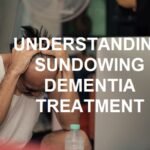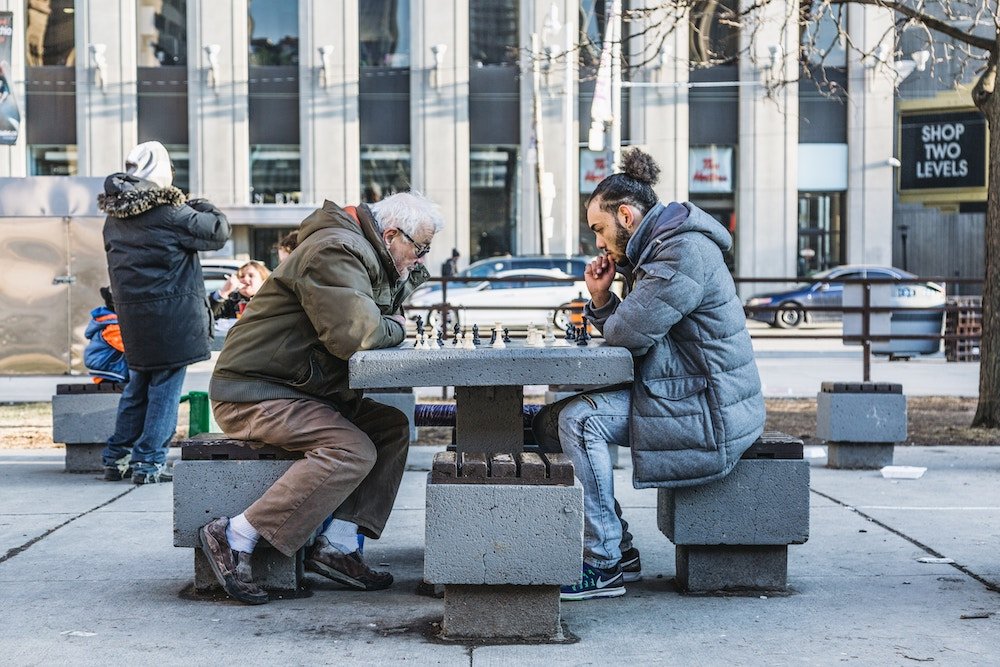We get many questions asking at what stage of dementia does sundowning occur? Unfortunately, it is a syndrome unavoidable for many.
Sundowning MOSTLY AFFECTS people with middle-stage or advanced dementia.
Individuals living with dementia may start to exhibit changes in behavior in the evening hours as the sun starts to set.
This type of behavior change is referred to as sundowning.
Generally, sundowning can be described as a GROUP of SYMPTOMS that may include confusion, agitation, irritability, and restlessness.
Affected persons will typically start to experience these symptoms around dinner time.
It can continue into the night.
Contents
Cause Of Sundowning

The cause of sundowning is not yet clear.
Researchers, however, believe that it is a result of a disruption in circadian rhythms which is the human natural body clock.
Circadian rhythms signal a person when it is time to sleep at night and when it is time to wake up in the morning.
If there is a disruption in this rhythm, it can be FRUSTRATING and IRRITATING which can make an individual act out through changed behavior.
Several factors may contribute to sundowning and these may include:
- End-of-day exhaustion (both physical and mental)
- Reduced lighting which can result in increased shadows causing persons with dementia to misinterpret things they see. This can make an individual feel more afraid and confused.
- Disorientation when a person cannot separate dreams from reality when they are sleeping.
- Less need to sleep
- Lots of noise
- Loss of routine
- Prescription medication wearing off
Coping Strategies
If a person with dementia is experiencing sundowning, there are a couple of coping mechanisms they can use to help MAKE the situation better.
Keeping the Living Space Well-Lit
Adequate lighting especially in the evening can help reduce agitation which occurs when surroundings are unfamiliar or dark.
Maintain a Schedule

People with dementia tend to do better when adhering to regular routines.
It is, therefore, important for caregivers to encourage affected individuals to maintain regular routines of sleeping, waking up, and meals.
Creating a Safe and Comfortable Sleeping Environment
An individual’s sleeping area should be as comfortable as possible.
This should include ensuring the bedroom has comfortable temperatures.
To INCREASE safety, caregivers can offer nightlights and make sure that window and door locks are secure.
Motion detectors and door sensors can alert loved ones when a person with dementia is wandering.
Plan Active Days
Persons with dementia who rest most of their days will have trouble falling asleep at night.
Discourage afternoon napping and instead schedule meaningful activities that affected individuals will ENJOY.
Where possible, include regular exercise and bathing in the early afternoon or morning so that the person can have a restful night.
Consult a Doctor

At times, persons with dementia may have to seek professional assistance to help with sundowning.
The professional may help to identify the cause of sleep problems and come up with appropriate solutions.
Many physicians will encourage the use of non-drug measures instead of medicines. There are many alternative therapies that can contribute.
Closing Thoughts – At what stage of dementia does sundowning occur?
Research indicates that sundowning often occurs during the middle or late stages of dementia. Knowing this provides clarity for those wondering at what stage of dementia sundowning occurs.
Carers of people with dementia should be well-equipped to deal with these new developments by applying coping strategies to help loved ones effectively deal with sundowning.
By recognizing the timing and knowing the triggers of sundowning, carers can provide the support needed. This ensures the comfort and safety for patients.







